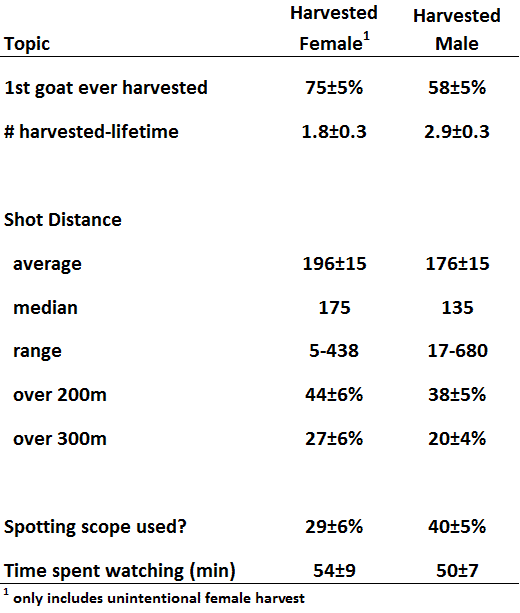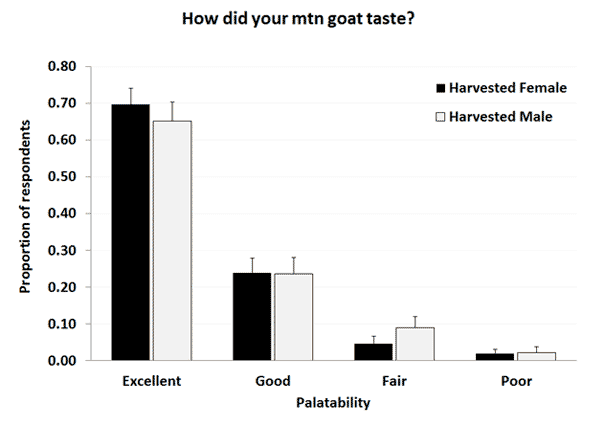Mountain Goat Research
Mountain goat hunter behavior and outreach

Mountain goats have relatively low survival and reproductive rates relative to other northern ungulates. Consequently, human harvest of mountain goat populations must be carefully managed to avoid overharvest and population declines. Unfortunately, correctly differentiating between male and female mountain goats in the field is difficult. As a result, either sex harvest is reluctantly allowed throughout most of Alaska. Fortunately, a point system (males = 1, females = 2) can be used to set harvest quotas to reduce the likelihood of overharvest. Nonetheless, reducing female harvest is desirable to increase population resilience and provide greater hunting opportunity. In an effort to reduce female mountain goat harvest we initiated an educational program intended to increase the ability of hunters to correctly identify male and female mountain goats in the field. Specifically, we developed a mountain goat identification quiz (available in both a hard copy and interactive web-based format) that was designed to highlight the subtle morphological and behavioral characteristics associated with correctly identifying male and female mountain goats.
In addition, we conducted follow-up phone interviews with successful hunters in order to evaluate whether the mountain goat identification quiz influenced the likelihood of hunters harvesting male vs. female mountain goats. We also examined other factors associated with harvest of male and female mountain goats such as, hunter experience, shot distance, field conditions and hunter intent. Overall, we determined that hunters who unintentionally harvested female mountain goats were: 1) less experienced, 2) tended to take longer shots and 3) were less likely to use spotting scopes. We also determined that 42% of hunters that harvested females did so intentionally. Yet, we determined that the palatability of meat harvested from males vs. females did not differ and was almost always rated as excellent or good quality. The results of this study provide key information needed to evaluate the effectiveness of hunter education materials to meet management goals and insights into behavior and challenges mountain goat hunters face in the field.
Project Collaborators
Alaska Department of Fish and Game
Publications
ADF&G. 2013. Mountain goat identification quiz. Alaska Department of Fish and Game, Juneau, AK.
From Alaska Fish and Wildlife News
- Mountain Goat Sex Education
- Mountain Goats: Mysteries and Management
- Managing Mountain Goats in Alaska
- Mountain Goats in Focus: Biologists Share Management and Research
More Information
For more information please contact Kevin White (kevin.white@alaska.gov).
Tables

Additional Figures

